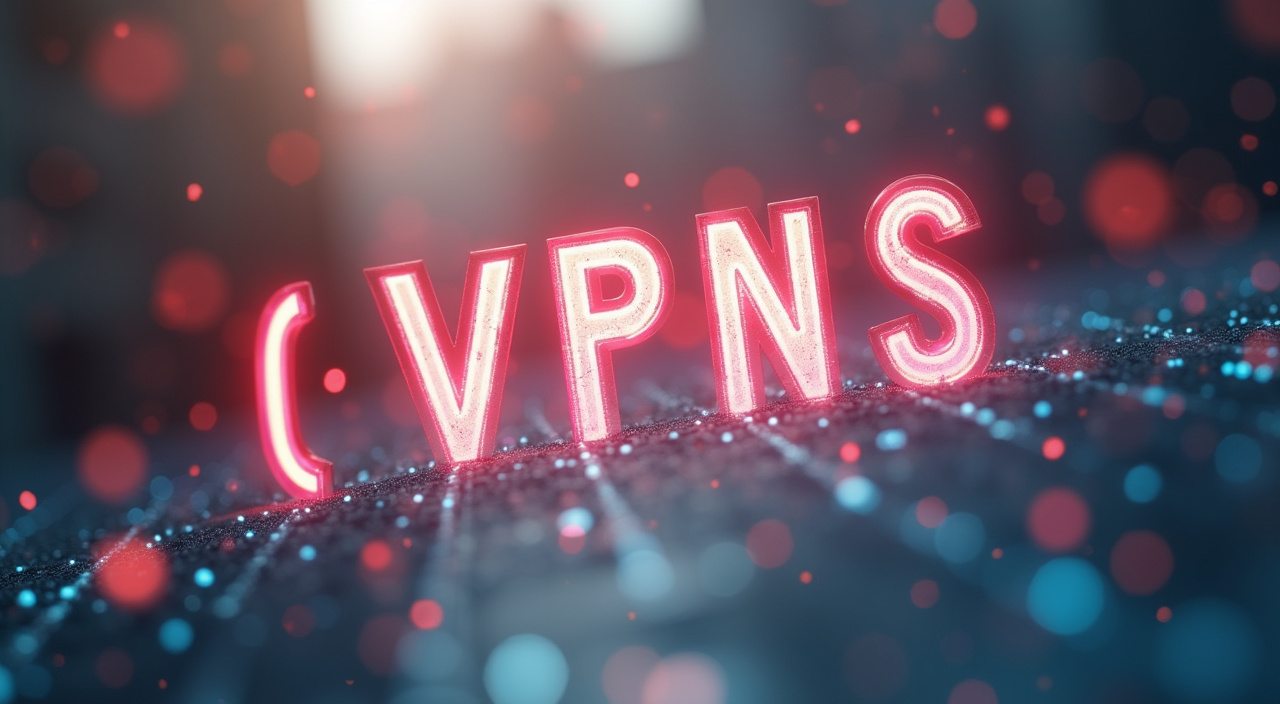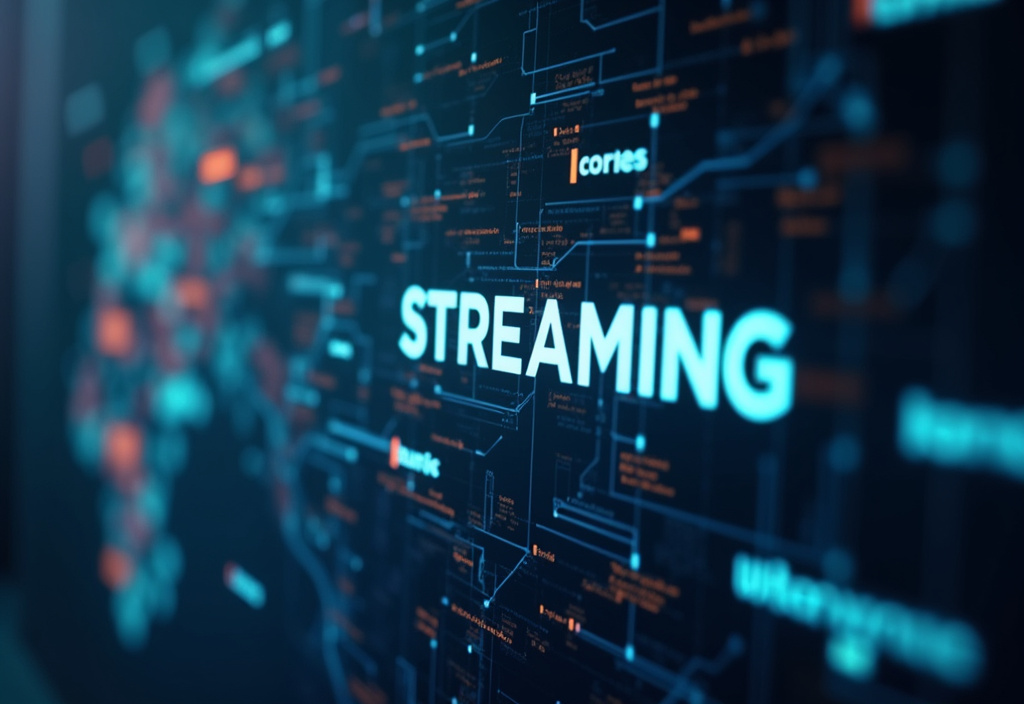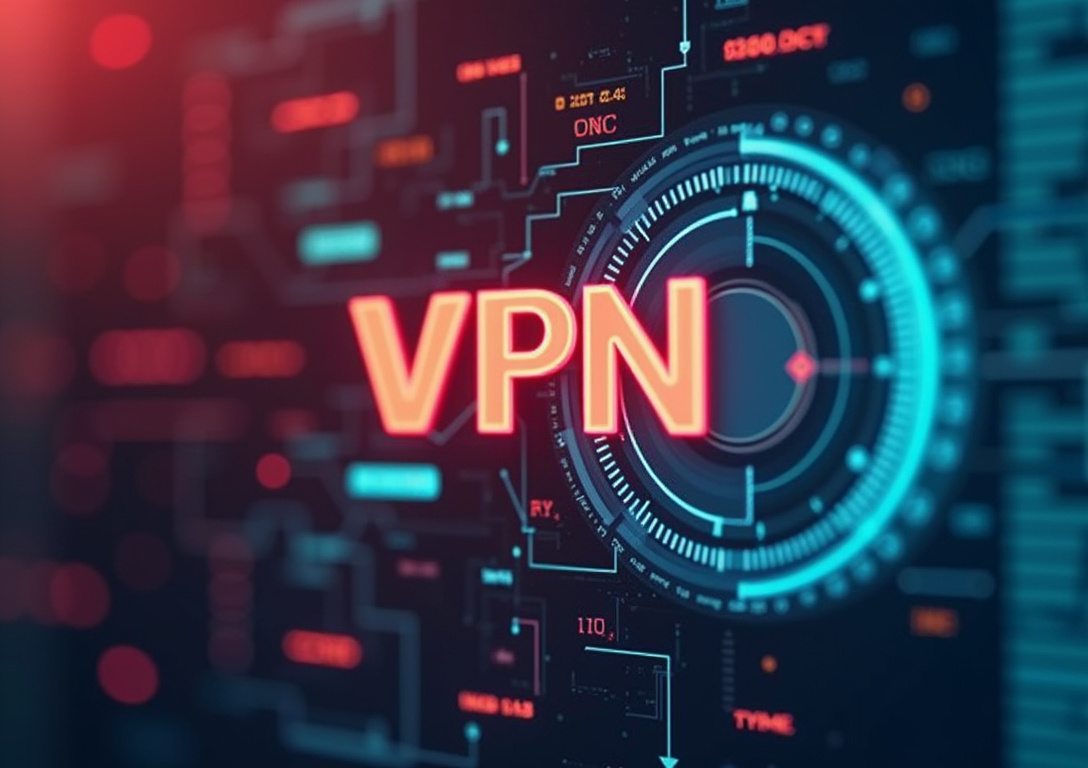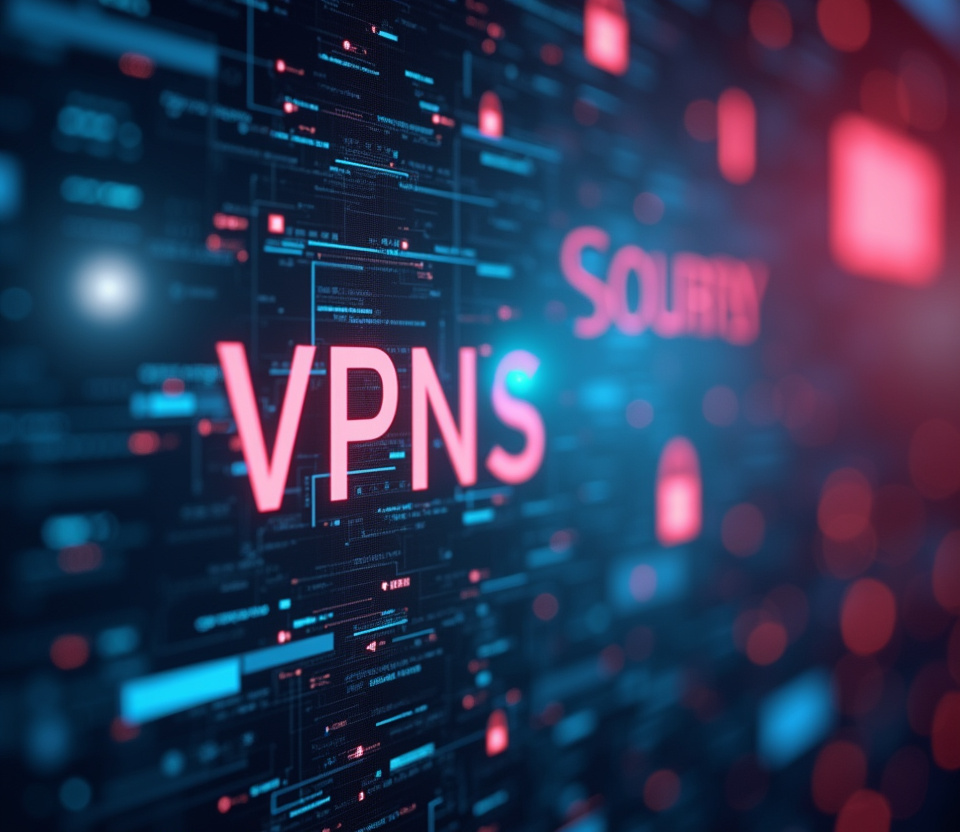Why VPN Speed Matters: Enhancing User Experience
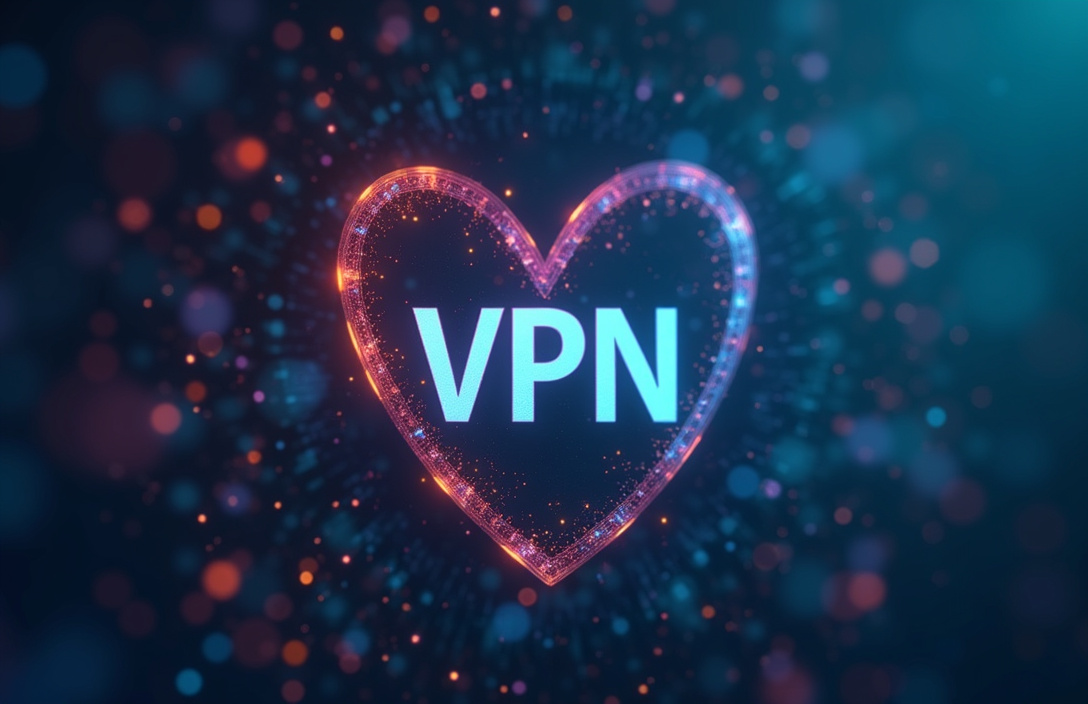
Table of Contents
VPN speed
In today's hyper-connected world, the importance of online security and privacy cannot be overstated. As individuals and businesses increasingly rely on the internet for communication, commerce, and entertainment, the need to protect sensitive data from prying eyes has become paramount. Virtual Private Networks (VPNs) have emerged as a critical tool for safeguarding online activity, offering a secure tunnel through which internet traffic can flow, shielded from eavesdropping and censorship.
While security and privacy are undeniably the primary reasons many choose to use a VPN, the impact of on the overall user experience is often overlooked, even though it's a crucial factor that can make or break the enjoyment and productivity of online activities. This article delves into the often-underestimated significance of VPN speed in enhancing the user experience, exploring the factors that influence VPN performance and offering practical strategies for optimizing speed without compromising security. A slow VPN can transform a seamless browsing session into a frustrating ordeal, characterized by sluggish page loads, buffering videos, and slow file downloads.
Such experiences can deter even the most privacy-conscious users, prompting them to disable their VPN and expose themselves to potential risks. Conversely, a VPN that provides can deliver the best of both worlds: a secure and private online environment without sacrificing speed or performance. The relationship between VPN speed and user experience is not simply a matter of convenience; it directly affects productivity, entertainment, and overall satisfaction with online activities.
Imagine trying to participate in a crucial video conference with a client while grappling with a VPN that constantly buffers and disconnects. Or picture attempting to stream your favorite movie in high definition, only to be met with pixelated images and endless loading screens. These scenarios highlight the tangible consequences of a slow VPN and underscore the importance of prioritizing speed when selecting a VPN service.
The question then becomes, what factors influence VPN speed, and how can users ensure they are getting the best possible performance? Several variables come into play, including the distance to the VPN server, the server's capacity and load, the encryption protocol used, and the user's underlying internet connection. Generally, data transmission has an added layer of security, and sending data to locations physically further away will add to speed issues.
All these can have a direct impact on the performance of any VPN or internet browsing. A complex encryption process will keep the traffic safe. The more complicated the encryption process, the more it may impact speed by slowing it down considerably.
Selecting a server closer to your location can significantly improve speed, while choosing a less congested server can prevent slowdowns during peak hours. Experimenting with different encryption protocols can also yield noticeable improvements, as some protocols are inherently faster than others. Ultimately, understanding the interplay between these factors is essential for making informed decisions and .
However, optimizing performance also involves selecting a VPN provider that prioritizes speed and invests in robust infrastructure. A reputable provider will have a vast network of servers strategically located around the world, ensuring that users can always find a server close to their location. They will also invest in high-bandwidth servers and advanced technologies to minimize latency and maximize speed.
Furthermore, the provider should offer a range of encryption protocols, allowing users to choose the one that best balances security and performance. Finally, a provider committed to transparency will readily provide information about their server infrastructure, network performance, and privacy policies, empowering users to make informed decisions and trust the service they are using. Thus we can conclude that the intersection of VPN speed with the user experience is not just of convenience but rather of a crucial impact which can have massive effects on productivity, seamless activity and satisfaction on online activity.
consistent VPN
The pursuit of a secure and private online experience should not come at the expense of speed and usability. The ideal VPN service strives to offer a experience, meaning that users can expect reliable speeds regardless of the time of day, their location, or the type of online activity they are engaging in. This consistency is paramount for maintaining user satisfaction and preventing frustration, ensuring that the VPN remains a valuable tool rather than an impediment to online productivity and enjoyment.
Inconsistent speeds can manifest in various ways, from sudden drops in download speeds to persistent buffering during streaming or unexpected lag spikes in online games. These fluctuations disrupt the user's flow and can lead to a sense of distrust in the VPN service. If a user constantly worries about whether their VPN will perform adequately, they are less likely to use it consistently, undermining the very purpose of having a VPN in the first place.
Factors that can compromise the consistency of a VPN connection are many. Server overload is a common culprit. When too many users connect to a single server, the available bandwidth becomes strained, leading to reduced speeds for everyone.
This is particularly noticeable during peak hours when more people are online simultaneously. The quality of the server hardware and network infrastructure is equally important. Servers with limited processing power or insufficient bandwidth capacity will struggle to handle heavy traffic, resulting in slowdowns and instability.
Intelligent server selection algorithms can only partially alleviate the problem if the limited hardware issues are not solved. The distance between the user and the VPN server is another key factor. As data travels further, it encounters more network hops and potential bottlenecks, increasing latency and reducing speed.
While users can manually choose different server locations to try and improve performance, a truly consistent VPN service should automatically connect users to the optimal server based on their location and network conditions. Another consideration is the level of encryption used by the VPN. Stronger encryption algorithms provide better security but can also add overhead, slowing down connection speeds.
A consistent VPN service will offer a range of encryption options, allowing users to prioritize speed or security depending on their specific needs. It should also employ advanced optimization techniques to minimize the performance impact of encryption. A consistent VPN will incorporate features to automatically adjust encryption levels based on network conditions, ensuring a smooth and seamless user experience regardless of the underlying infrastructure.
The VPN provider's network management practices also play a crucial role. A proactive provider will continuously monitor its network for potential issues, such as congestion, server outages, or security threats, and take steps to address them promptly. This might involve adding new servers, upgrading existing infrastructure, or implementing traffic management policies to prioritize critical traffic.
A truly consistent VPN service will also be transparent about its network performance. It should provide users with real-time data on server loads, connection speeds, and latency, allowing them to make informed decisions about which servers to connect to. Some providers even offer built-in speed test tools that allow users to quickly assess the performance of different servers.
Therefore, a experience necessitates a commitment to robust infrastructure, proactive network management, and transparent communication. VPNs that uphold their reliability in providing consistent service allows people to trust the features, thus using the service without worrying about online security and privacy concerns. This in turn makes day-to-day activity more streamlined without constant settings adjustment, hence increasing the trust and reliability in using such services.
optimize performance
Once you've chosen a VPN service that promises both security and speed, it's essential to take proactive steps to and ensure you're getting the most out of your connection. Even the fastest VPN can be affected by various factors, from your own network configuration to the applications running on your device. By understanding these factors and implementing some simple optimization techniques, you can significantly improve your VPN speed and enjoy a smoother, more responsive online experience.
One of the most effective ways to boost VPN speed is to choose the right server location. As we've discussed, the further the data has to travel between your device and the VPN server, the higher the latency and the slower the connection. So, if you're located in Europe, connecting to a server in North America will inevitably result in slower speeds than connecting to a server in Germany or the UK.
In most cases, it's best to select a server that is geographically close to your actual location. However, there may be situations where you need to connect to a server in a different region, for example, to access content that is only available in that region. In such cases, try to choose a server that is still relatively close to your location.
Another important factor to consider is server load. VPN servers can become congested during peak hours, leading to reduced speeds for everyone. Most VPN clients provide information about the current load on each server.
Whenever possible, choose a server with a lower load to improve your connection speed. Experiment with different server locations and monitor your speed to find the best option for your needs. The VPN protocol you're using can also significantly impact performance.
Different protocols offer different levels of security and speed. OpenVPN is a popular and secure protocol, but it can sometimes be slower than other options. IKEv2/IPsec is another secure protocol that often provides faster speeds than OpenVPN.
WireGuard is a relatively new protocol that is designed to be both secure and incredibly fast. Many VPN clients allow you to choose which protocol to use. Experiment with different protocols to see which one works best for your network and device.
Sometimes, simply switching protocols can result in a noticeable improvement in speed. Your underlying internet connection can also limit your VPN speed. If you have a slow or unstable internet connection, you won't be able to get the maximum speed from your VPN.
Run a speed test without the VPN to see what your baseline internet speed is. If your internet speed is significantly slower than what you're paying for, contact your internet service provider to troubleshoot the issue. Consider upgrading to a faster internet plan if necessary.
The type of device you're using and its configuration can also affect VPN speed. Older devices or devices with limited processing power may struggle to encrypt and decrypt data quickly, resulting in slower VPN speeds. Close any unnecessary applications and background processes to free up resources and improve performance.
Make sure your device's operating system and VPN client are up to date. Updates often include performance improvements and bug fixes that can improve VPN speed. Furthermore, your firewall or antivirus software may interfere with your VPN connection.
Try temporarily disabling these programs to see if it improves your speed. If it does, adjust the settings of your firewall or antivirus software to allow VPN traffic. By meticulously working through the steps above, you can greatly and ensure a smooth surfing experience at high speed while implementing a VPN.
user experience
Beyond the technical aspects of server selection, protocol choices, and device optimization, there's a crucial element to consider when evaluating VPN speed: the nature of your internet service provider (ISP). While a VPN aims to mask your traffic and provide a secure tunnel, the underlying connection provided by your ISP significantly impacts the overall . Understanding how your ISP interacts with your VPN is vital for achieving and ensuring a consistently smooth online experience.
One common issue is ISP throttling. Some ISPs may intentionally slow down your internet speed if they detect that you're using a VPN, especially if you're engaging in activities like streaming or downloading large files. This practice, known as throttling, is often done to manage network congestion or to discourage users from bypassing regional content restrictions.
While it can be difficult to definitively prove that your ISP is throttling your connection, there are a few telltale signs. If you notice a significant drop in speed when you connect to your VPN, and the speed returns to normal when you disconnect, throttling is a likely culprit. You can also try using online speed test tools to compare your speed with and without the VPN enabled.
If you suspect that your ISP is throttling your connection, there are a few steps you can take. First, try switching to a different VPN server. Your ISP may be specifically targeting certain VPN servers or IP addresses.
By switching to a different server, you may be able to bypass the throttling. Second, try using a different VPN protocol. Some protocols are more difficult for ISPs to detect and throttle.
For example, the TCP protocol is more easily detectable than the UDP protocol. Experiment with different protocols to see if one works better for you. Third, you can try contacting your ISP directly and complaining about the issue.
While they may not admit to throttling your connection, simply raising the issue may be enough to discourage them from doing so. Also important is the distance from central infrastructures from your internet provider. Being far away from the core infrastructure has negative impact on internet speeds directly as distance traveled degrades even the base connection speed from what you pay for, to what you eventually get.
Some ISPs provide additional tools to help diagnose and even provide solutions or alternative ways to use technologies that may help with internet speeds. For example, they can provide wifi signals and router devices that incorporate newer technologies for signal boost. The location from the internet provider is also an important aspect of VPN locations, as mentioned in prior pharagraphs.
By setting the VPN in an area that is closer to your location, then it mitigates the issues of any degradation from far distance traveling. Also using VPNs that implement newer technology or protocols may also influence on high speeds with minimum degradation. Ultimately, building and sustaining a robust VPN requires technical experience and expertise, and a dedication to ensuring reliable speeds to customers, especially during peak hours.
Providers and service providers who take a collaborative relationship in offering faster internet speeds ensure satisfied users along the way. Understanding the ISP side enables for individuals as they are better able to troubleshoot what exactly may be the problem of lower connection issues.
user experience
In conclusion, VPN speed is not merely a supplementary feature but an integral component of the overall . While the core functions of a VPN – security, privacy, and access to geo-restricted content – are undoubtedly important, their value is diminished if the VPN operates at speeds that hinder or disrupt online activities. Selecting a VPN service that provides and a experience is crucial for ensuring that users can enjoy the benefits of a secure and private internet connection without sacrificing speed, productivity, or entertainment.
Throughout this article, we have explored the various factors that influence VPN speed, from the distance to the VPN server and the server's capacity to the choice of encryption protocol and the potential for ISP throttling. We have also discussed practical strategies for optimizing VPN performance, including selecting the closest server, experimenting with different protocols, closing unnecessary applications, and using a wired Ethernet connection. By understanding these factors and implementing these techniques, users can significantly improve their VPN speed and unlock the full potential of their online experience.
Beyond the technical considerations, there's a deeper implication to the relationship between VPN speed and user experience. A slow VPN can create a sense of frustration and distrust, undermining the user's confidence in the service and potentially leading them to abandon it altogether. Conversely, a fast and reliable VPN can foster a sense of security and control, empowering users to explore the internet with freedom and peace of mind.
This, in turn, can encourage them to adopt more privacy-conscious online habits and to advocate for a more secure and open internet for everyone. Looking ahead, the demand for VPN services is likely to continue to grow, driven by increasing concerns about online privacy, security threats, and censorship. As the VPN market expands, competition among providers will intensify, leading them to prioritize speed and performance as key differentiators.
We can expect to see further innovations in VPN technology, with the emergence of new protocols, more efficient encryption algorithms, and more sophisticated server infrastructure. These advancements will pave the way for even faster and more reliable VPN connections, further enhancing the user experience and making VPNs an even more essential tool for navigating the digital world. Ultimately, the future of VPNs depends on striking a delicate balance between security, privacy, and speed.
While robust encryption and stringent privacy policies are essential, they must not come at the expense of performance. VPN providers must continue to invest in infrastructure, optimize their software, and educate users about how to . By doing so, they can ensure that VPNs remain a valuable tool for protecting online privacy and security without compromising the user experience.
The ultimate goal is to create a seamless and transparent experience, where users can enjoy the benefits of a VPN without even noticing it's there, just like a well-paved road that lets them reach their online destination quickly and safely. With dedication and effort, we can achieve this goal and create a more secure, private, and enjoyable internet for everyone.
Stay Updated
Get the latest VPN news, tips, and exclusive deals to your inbox.
